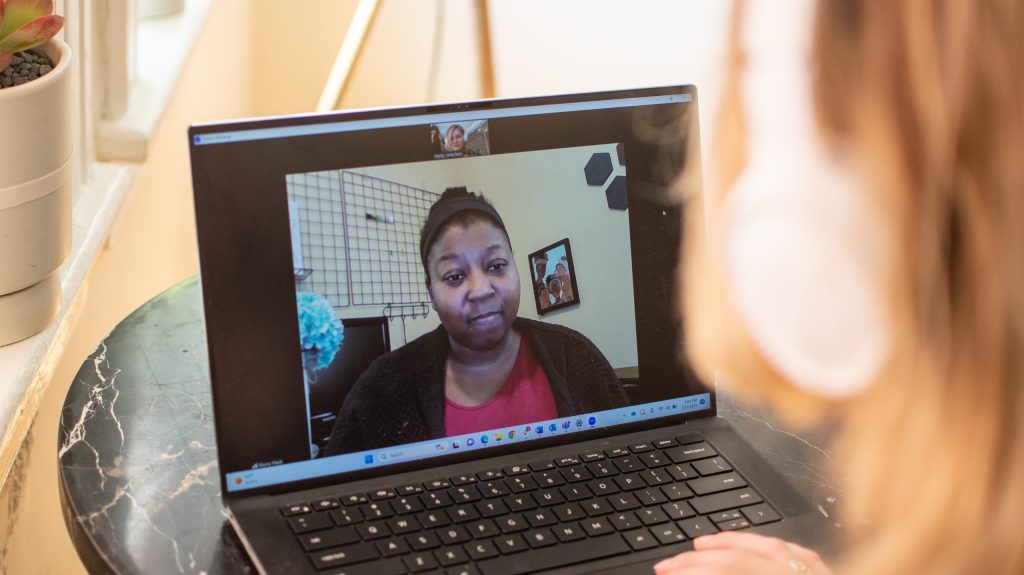The year 2023 has proven to be pivotal for telehealth, as legislators in Virginia and across the country took significant steps to ensure continued flexibility and encourage the use of telehealth services. We’re grateful to work alongside many leaders at the forefront of this movement towards a shared goal of enhancing innovative health care solutions.
Several bills this year that were introduced, passed, or extended aimed to empower providers and facilitate the seamless integration of telehealth. New funding announced also sought to close the gap for patients who lack access to virtual services. To close out the year, let’s revisit some wins and work-in-progress that will carry into 2024.
Flexibilities Signed in Law

Earlier this year, legislators codified revised rules that were put in place in 2020, allowing patients in Virginia continued access to virtual healthcare solutions. Emergency declarations signed into law include:
- The ability for a person to continue seeing an out-of-state provider not licensed in Virginia for a year after initially establishing an in-person relationship with them in that state.
- Virginians receiving Medicaid will continue to have coverage for remote patient monitoring services, as well as certain Virginians with commercial coverage.
- SB317, passed by Senator Barbara Favola, allows out-of-state providers to practice in the Commonwealth for 90 days, provided certain provisions are met.
“The truth is, the pandemic was a real turning point for telehealth, demonstrating how effective it can be at bringing care to those who weren’t getting it before. That’s why I’m leading the charge to make these flexibilities permanent when they expire at the end of 2024,” Senator Mark Warner said in a statement. “I’m grateful for the partnership with the Virginia Telehealth Network and the good work it’s doing to coordinate the implementation of telehealth across the Commonwealth.”
Expanding Telehealth to Treat Substance Use Disorder
Last month, Senators Warner and Tim Kaine, along with others, introduced the TREATS Act, a bipartisan bill to expand access to telehealth treatment for patients experiencing substance use disorder.
“We have learned how useful telehealth can be for patients with opioid addiction, which is why I was proud to introduce this to permanently adopt safe and commonsense telehealth practices that will expand care options for those battling substance use disorder,” Senator Warner said.
Despite compelling evidence highlighting medication as the most efficacious approach for substance use disorder treatment, one in five Americans benefits from medication treatment. The TREATS Act aims to enhance accessibility to life-saving medications such as buprenorphine, potentially saving lives.
Expanding Tele-Prescribing Flexibilities
Twice this year, the Drug Enforcement Administration (DEA) announced an extension of temporary telehealth rules as it works towards defining what permanent rules will look like. The latest revised temporary regulation explicitly specifies that “from November 12, 2023, to November 11, 2024, a practitioner registered with the DEA may prescribe schedule II–V controlled substances through telemedicine to a patient with whom they have established a telemedicine relationship under the COVID–19 telemedicine prescribing flexibilities, without necessitating an in-person medical evaluation of the patient,” provided that the specified conditions are satisfied.
While telehealth provides convenience and efficiency to providers and patients alike, the DEA is hoping to find a balance of permanent flexibilities and safeguards to minimize potential abuse.
Broadband Initiatives Aim to Increase Access to Care
In June, Senator Warner announced a $1.4 billion investment to expand broadband in Virginia with funding awarded through the Broadband Equity, Access, and Deployment Program. These funds are being used by the Virginia Telecommunication Initiative to reach unserved and underserved communities throughout the Commonwealth – those lacking 25/3 internet speeds and 100/20 internet speeds.
Additional funding was announced by Senators Warner and Kaine together in September with over $16 million in federal funding sourced from the Middle Mile Broadband Infrastructure Grant Program for broadband deployment. Funding will be used to construct new fiber to build eight open-access middle mile fiber segments that will connect internet service providers to larger data centers and local networks in 12 Virginia localities across Central and Southside Virginia.
This funding is essential in increasing access to telehealth care for the Virginians who lack internet service.
There is so much to be celebrated thanks to the dedicated work of legislative leaders championing telehealth in the Commonwealth. We look forward to what 2024 will bring as we continue to make strides in advancing the adoption of telehealth.
For a comprehensive list of pending legislation and regulations in Virginia, visit the Center for Connected Health Policy.

